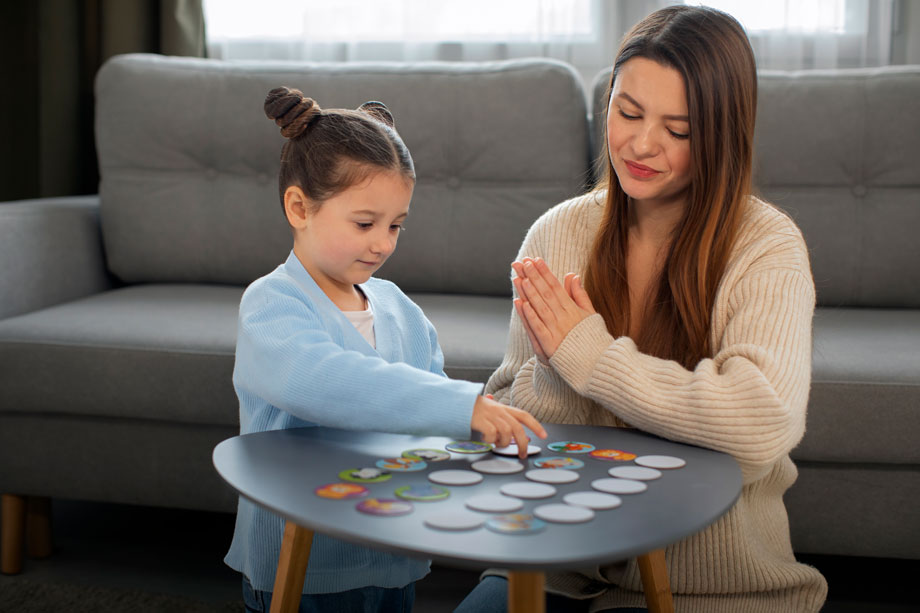Let’s dive into the top 10 red flags that suggest you might be an autism parent—even if you’re not sure just yet.
- You Have a PhD in Routine Management
Consistency is key when raising a child with autism. If your family has a schedule that rivals the most detailed daily planners, this might be a sign you’re an autism parent. You’ve mastered the art of organizing every part of the day—from morning routines, meal times, and play, all the way to bedtime rituals. Even the slightest disruption in this schedule can throw off the whole day, so keeping things predictable becomes second nature.
Red Flag: You know exactly how long it takes to drive to every destination and plan for contingencies in case anything unexpected happens.
- You’re a Sensory Detective
If you’ve developed a sixth sense for understanding how sensory stimuli impact your child, this might be your telltale sign. You know which clothing textures, sounds, or smells are acceptable and which are complete no-gos. Whether it’s dimming lights or avoiding noisy environments, you’ve become a pro at anticipating sensory triggers before they happen.
Red Flag: You find yourself scanning restaurants or public spaces for potential sensory overloads, like bright lights or loud noises.
- You Speak “Behavior” Like a Second Language
To most people, a tantrum might just seem like a tantrum, but to you, it’s so much more. You’ve learned to decode your child’s behavior like an expert, knowing whether it’s sensory overload, frustration, or an unmet need. You understand the difference between a meltdown and a tantrum, and you’ve adapted your responses to each accordingly.
Red Flag: When other parents give puzzled looks at your calm reaction to a meltdown, you know it’s because you’ve become an expert in behavior interpretation.
- You Have an Encyclopedia of Therapies in Your Head
Whether it’s ABA, occupational therapy, speech therapy, or social skills groups, you’re familiar with the broad range of therapies available for children on the spectrum. Not only do you know what they are, but you can also discuss the pros, cons, and potential outcomes for your child. You’ve done the research, attended the meetings, and crafted therapy schedules to support your child’s development.
Red Flag: You can explain the difference between fine motor and gross motor skills like a seasoned professional.
- You’ve Learned to Appreciate “Different, Not Less”
As an autism parent, you’ve probably moved beyond worrying about your child fitting societal molds and embraced the uniqueness of who they are. The mantra “different, not less” resonates deeply with you, and you encourage your child to thrive in their own way, even if it’s not on a “traditional” path.
Red Flag: You’ve stopped comparing your child to others and celebrate their unique milestones with full-hearted pride.
- You Know All the Best Quiet Spots
Navigating public outings with your child might mean finding peaceful, low-stimulation spots where your child can feel comfortable. Whether it’s a quiet corner of the park, a sensory-friendly room at a museum, or the perfect nook in a busy store, you know exactly where to go when your child needs a sensory break.
Red Flag: You have a mental map of every local space that offers sensory-friendly areas, and you can guide other parents to them without hesitation.
- You’ve Mastered the Art of Advocacy
If you’re an autism parent, chances are you’ve learned how to be a strong advocate for your child. Whether it’s working with teachers, healthcare providers, or even family members, you’ve developed the skills to ensure your child gets the support and understanding they need. You’re not afraid to speak up, request accommodations, or challenge outdated stereotypes about autism.
Red Flag: You’ve memorized sections of your local education law and can calmly navigate IEP meetings like a pro.
- You Know Communication Isn’t Just Words
For many children with autism, verbal communication may not come easily or in the way others expect. Whether your child is non-verbal, uses AAC (Augmentative and Alternative Communication) devices, or communicates through gestures and behaviors, you’ve learned to appreciate the broad spectrum of communication methods. You celebrate every form of connection, whether it’s a word, a touch, or even eye contact.
Red Flag: You cheer as much for a new word as you do for a meaningful gesture or glance, knowing how important each form of communication is.
- You’ve Become the Calm in the Storm
If you’re an autism parent, you know that situations can escalate quickly. From sensory meltdowns to overwhelming social settings, you’ve learned to remain calm even when things feel chaotic. Your ability to stay grounded in stressful situations has become one of your greatest strengths, providing your child with the support they need to regulate and return to calm.
Red Flag: People comment on your composure, and you know it’s because you’ve practiced remaining calm more times than you can count.
- Your Child’s Progress Is Measured in a Unique Way
You don’t focus on traditional milestones; instead, you celebrate progress in small, meaningful ways. Whether it’s trying a new food, using a new communication tool, or simply showing interest in a new activity, you recognize that each step forward is a triumph. While others may overlook these victories, you see them for the incredible achievements they are.
Red Flag: The smallest signs of growth—like wearing a new fabric without complaint—bring tears of joy because you know how much effort it took to get there.
Whether you’re a full-time autism parent or simply recognize some of these “red flags” in your own life, it’s clear that parenting a child with autism comes with its own set of experiences. These experiences may be challenging at times, but they are also filled with moments of growth, learning, and incredible love.
By embracing these “red flags,” you’re not only supporting your child but also developing a deeper understanding of what it means to parent in a way that is compassionate, flexible, and endlessly resilient.
As you continue on this journey, remember that every family’s experience is different, but what binds all autism parents is a shared commitment to supporting their children in becoming the best versions of themselves—whatever that looks like.




